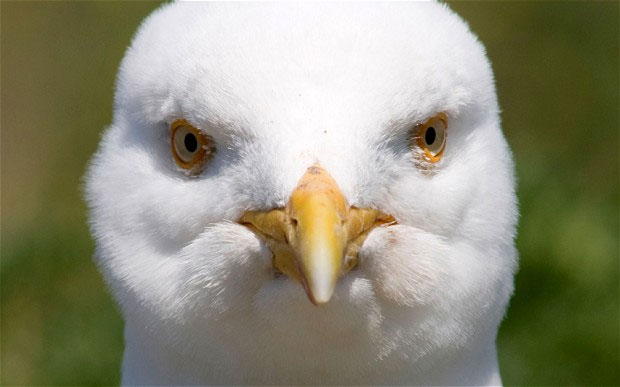Birds 'invasion' city because of lack of bait
The number of gulls in urban areas in the UK has increased rapidly over the past time due to scarcity of sea food and landfills.
>>>Gulls whale whale meat
Herring gulls are one of the most endangered species because their numbers have decreased by more than half in the past 40 years.
But while the number of gulls on the coasts and cliffs decreases, their "population" in British urban areas rises, the Telegraph quoted the Royal Society of Bird Guard (RSPB) as saying.

Grahame Madge, a member of the RSPB, says that the Herring gull is a scavenger animal.
"In the past, seagull colonies had fish carcasses from fishermen 's ships and leftovers at landfills near food processing factories , " Madge said.
However, the number of British fishing boats decreased and the new European Union (EU) policies aimed at limiting the behavior of removing fish carcasses on the ship made the feed of Herring gulls fall sharply. In addition, city councils also launched a campaign to recycle leftovers to produce electricity. So gulls cannot find food in landfills near food processing plants anymore.
"Like cliffs, buildings in the city are places where gulls can nest. In addition, urban food sources are plentiful, including leftover food in the streets and fast food. Seagulls are smart, so they learn how to open packages of leftovers and steal food from people very quickly, " Madge commented.
The RSPB estimates that between 2,000 and 3,000 seagull pairs are living in British cities and their numbers are growing rapidly. A new BBC survey shows that about 100,000 pairs of Herring gulls and black-backed gulls live in urban environments. They can cause many problems, including tossing trash cans and attacking people. Some city councils must apply anti-gulling measures such as breaking their nest. Even people in some places have proposed seagull shooting.
- Animal photos: The beauty of the Tu-birds
- Birds know how to use fire to fly bait to hunt
- Birds 'read' passwords to receive bait
- The phenomenon of mysterious dead birds in China
- America is bewildered by ... drunken birds
- Urban birds are more aggressive than rural birds?
- Ho Chi Minh City still temporarily allows breeding birds
- Birds never ... fly
- Lack of food makes young birds killed
- Extremely rare birds appear more and more in the city
- 'Typhoon' defeated the invasion of the Mongolian empire
- Birds live in cities up later than rural birds
 Animal 'suffering' after hibernation
Animal 'suffering' after hibernation Why do goats climb well?
Why do goats climb well? Scientists were surprised to see chimpanzees eating turtles
Scientists were surprised to see chimpanzees eating turtles Giant catfish died deadly due to drought in Thailand
Giant catfish died deadly due to drought in Thailand